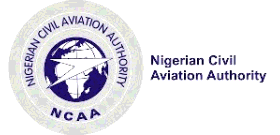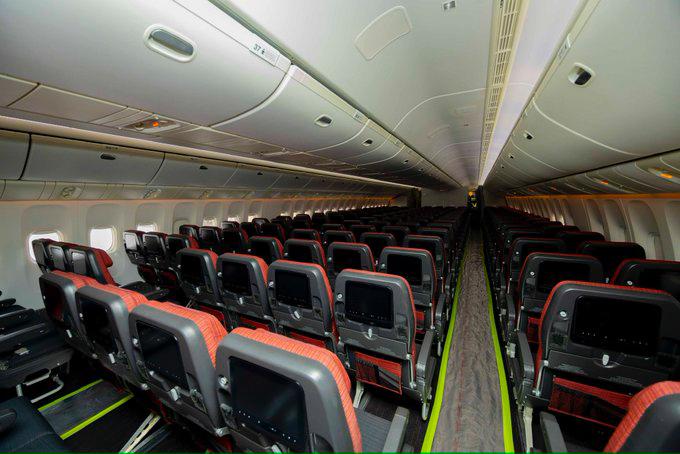Explosive Claims: Orji Kalu Alleges Pilots Smoke Indian Hemp, NCAA Rages Back!

During a Senate plenary session on Wednesday, October 15, Senator Orji Uzor Kalu, representing Abia north, ignited a significant debate within Nigeria's aviation sector by alleging that some pilots operating in the industry smoke Indian hemp. This contentious claim was made while Senator Kalu was speaking in support of a motion that raised profound safety concerns, prompted by a report from the Nigerian Safety Investigation Bureau (NSIB) concerning an Air Peace runway incident at the Port Harcourt International Airport.
The incident that triggered these discussions involved a Lagos-Port Harcourt Air Peace flight P47190, which skidded off the runway upon landing on July 13. Senator Abdulfatai Buhari, representing Oyo north and chairman of the senate committee on aviation, moved the motion, stating that the specific incident he referenced, involving an Air Peace Boeing 737-500, occurred on June 22, 2025. While no lives were lost in the events, Senator Buhari emphasized that they exposed “critical gaps in safety standards, infrastructure management, and operational compliance” within the Nigerian aviation sector, expressing concern over an increase in runway-related incidents.
Seconding the motion, Senator Kalu elaborated on his allegations, asserting that some pilots are “careless and not properly supervised” by the authorities. He claimed, “Some of them smoke Indian hemp and some of them are not properly audited by the authorities. They are not doing it.” Kalu further criticized aviation authorities as “lousy” and highlighted that some runways are in poor condition. He urged relevant agencies, including the Nigerian Civil Aviation Authority (NCAA), to intensify their oversight on pilots and cabin staff.
The NSIB report, as highlighted by Senator Buhari, identified deficiencies in crucial areas such as runway conditions, airfield lighting, pilot decision-making, and regulatory oversight, calling for immediate corrective measures. The Senate underscored the importance of aviation safety for national security, economic growth, and Nigeria’s standing as an emerging African air transport hub. Senator Danjuma Goje of Gombe central stressed the need for the aviation committee to conduct thorough oversight, warning against complacency in aviation safety.
Following the robust debate, the Senate resolved to take several decisive actions. It asked the Federal Ministry of Aviation, in collaboration with the Federal Airports Authority of Nigeria (FAAN), to urgently implement the NSIB report's recommendations. The Nigerian Civil Aviation Authority (NCAA) was directed to strengthen compliance monitoring, conduct routine audits of airport facilities, and enforce adherence to international safety standards. FAAN was also mandated to prioritize the rehabilitation of runways, install modern navigational aids, and provide airfield lighting across airports, commencing with the Port Harcourt International Airport. The committee on aviation was tasked with engaging stakeholders and investigating aviation agencies, with a mandate to report back within six weeks and four weeks respectively, and to expedite the construction of a second runway for the Abuja airport. The lawmakers commended the NSIB for its prompt investigative report, viewing it as a move towards transparency and accountability.
In a swift and firm response, the Nigeria Civil Aviation Authority (NCAA), through its Director-General Chris Najomo, dismissed Senator Kalu’s allegations as “baseless and misleading.” In a statement issued on Thursday, the NCAA clarified that it maintains a “rigorous and internationally recognised system” for certifying and monitoring the medical and professional fitness of all pilots operating in Nigeria. The authority emphasized that no pilot is permitted to operate a Nigerian-registered aircraft without holding both a valid pilot license and a current medical certificate, as stipulated by the Nigeria Civil Aviation Regulations (Nig. CARs) Part 8.4.1.4. Specifically, Commercial Pilot Licence (CPL) and Airline Transport Pilot Licence (ATPL) holders must possess a Class 1 Medical Certificate, issued only after comprehensive aero-medical evaluations by NCAA-authorised aviation medical examiners and approved by in-house assessors.
These exhaustive medical examinations cover cardiovascular, neurological, psychological, metabolic, respiratory, and visual assessments, critically screening for the use of psychoactive substances, mental or behavioral disorders, and other conditions that could impair safe flight operations. The NCAA specified that medical certificates are valid for twelve months for pilots under 40 years of age and six months for those aged 40 and above, requiring new tests for renewal. The authority's regulations explicitly prohibit flight crew from operating an aircraft within eight hours of consuming alcohol or while under the influence of any substance that could affect performance. The NCAA conducts random and unannounced drug tests on crew members, with results admissible as legal evidence, further underscoring its commitment to a zero-tolerance policy against substance abuse.
Regarding oversight, the NCAA stated that its inspectors conduct daily ramp inspections at airports nationwide, meticulously verifying crew licenses, medical certificates, and overall fitness for duty. Any detected irregularity is promptly addressed with appropriate enforcement action. The authority cited the August 2025 suspension of a ValueJet pilot for initiating departure without proper clearance as an example of its “uncompromising commitment to safety and discipline.”
Addressing Senator Kalu’s assertion that modern aircraft, such as the Boeing 737-500, can take off and land automatically, the NCAA clarified that take-offs are entirely manual operations. While aircraft are equipped with autopilot and autoland features, these do not replace pilot responsibilities. Autopilot functions are activated only after take-off, and autoland systems are utilized under specific weather conditions and always under pilot supervision. The NCAA stressed that Nigeria does not currently have any airport certified for Category III (CAT III) operations, which are required for fully automatic landings in low-visibility conditions, meaning all landings within Nigerian airspace are manually executed by pilots.
The NCAA concluded by reaffirming that Nigeria’s aviation oversight system aligns with global standards set by the International Civil Aviation Organization (ICAO) and has consistently met ICAO’s audit requirements under the universal safety oversight audit programme (USOAP). The authority expressed pride in the professionalism of Nigerian flight crew and the robustness of its oversight structure, asserting its unwillingness to condone any practice that could erode public confidence. While acknowledging the Senate’s concerns, the NCAA maintained that Senator Kalu’s comments “do not reflect the factual state of regulatory practice in the Nigerian aviation sector,” yet reiterated its openness to constructive engagement with the National Assembly and all stakeholders to enhance the safety and integrity of Nigeria’s air transport industry.
You may also like...
Why Your First Failure Might Be the Best Thing That Ever Happened to Your Business

Failure isn’t the end of entrepreneurship, it’s the education success never gives. Here’s why your first business collap...
Consumerism vs Culture: Is Africa Trading Values for Trendy Lifestyles?

Is Africa trading its cultural values for trendy lifestyles? Explore how consumerism, foreign brands, and social media p...
The War on Boys: Are African Male Being Left Behind in Gender Conversations

Why are African boys and men often left out of gender empowerment programs? Explore how emotional suppression, lack of m...
Pay Slip, Motivation Slips: The Silent Crisis Among the Working Class

Across Nigeria, millions of workers are trapped in jobs that pay just enough to survive but too little to live. Beneath ...
Premier League's Unsung Heroes: Bournemouth, Sunderland, and Tottenham Shockingly Exceed Expectations

This Premier League season sees teams like Bournemouth, Sunderland, and Tottenham exceeding expectations. Under Thomas F...
El Clasico Fury: Yamal Controversy and Refereeing Blunders Ignite Post-Match Debates
)
Real Madrid secured a 2-1 El Clasico victory over Barcelona amidst significant controversy surrounding a late penalty de...
Kate Hudson & Hugh Jackman Eyeing Oscars with ‘Song Sung Blue’ Breakthrough

"Song Sung Blue" tells the true story of Mike and Claire Sarina, who find love and acclaim as a Neil Diamond tribute ban...
Pennywise Unleashes Horror: 'It: Welcome to Derry' Premiere Shocks Viewers

HBO Max's "IT: Welcome to Derry" plunges audiences into 1962 Derry, Maine, exploring the origins of Pennywise with a bru...



